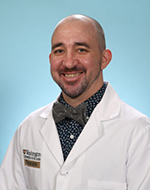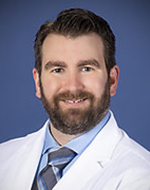MSGERC Grand Rounds Webinar Series
Episode 11—Could it Be Fungal? Exploring Clinical Scenarios
Archived from January 7th, 2025
Fungal infections can manifest in many ways, making diagnosis challenging. When should you think fungal? What are the skin, central nervous system, and pulmonary signs and symptoms that should trigger a fungal diagnostic workup? In this webinar, expert infectious diseases experts Dr Derek Bays and Dr Patrick Mazi present clinical scenarios where a fungal workup is appropriate. This discussion will include clinical scenarios to help the non-specialist recognize clues in fungal etiology and begin the fungal diagnostic process.
Faculty

Patrick B. Mazi, MD, MSCI
Assistant Professor of Medicine
Division of Infectious Diseases
Washington University School of Medicine
St. Louis, Missouri
Dr. Mazi attended medical school at the University of Missouri and completed an Internal Medicine residency at the Medical College of Wisconsin. Dr. Mazi then completed two fellowships (Infectious Disease and Critical Care Medicine) and earned a master’s degree in clinical investigation from Washington University in St. Louis. He is now an Assistant Professor of Medicine at Washington University in St. Louis with appointments in both Infectious Diseases and Pulmonary & Critical Care Medicine. His research focus is on improving the care of patients suffering from fungal infections.

Derek J. Bays, MD
Assistant Clinical Professor
Department of Internal Medicine, Division of Infectious Diseases
UC Davis Health
Sacramento, California
Dr. Bays is an Assistant Clinical Professor in the Department of Internal Medicine, Division of Infectious Diseases at UC Davis Health. He has been described as a UC Davis barnacle given that he attended UC Davis for his undergraduate education through his infectious diseases fellowship before joining the faculty. Dr. Bays became interested in infectious diseases after working in the Coccidioidomycosis Serology Lab as an undergraduate and now his lab focuses on interactions of the gastrointestinal microbiota and Candida albicans.

